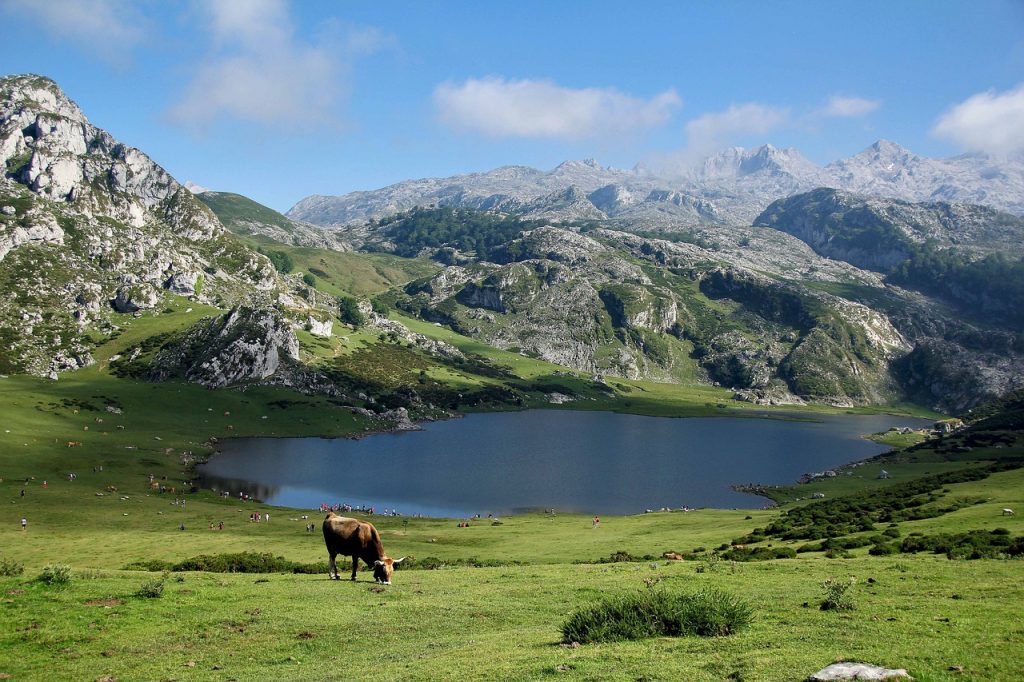As a colossal natural barrier between France and Spain, the Pyrénées stand as an imposing testament to the power of geological forces and the intersection of diverse cultures. This mountain range, renowned for its rugged beauty, pristine landscapes, and rich biodiversity, provides not just a scenic backdrop but a unique canvas for eco-friendly travel. In this exploration, we unravel the intricate tapestry of the Pyrénées, examining its ecological significance, cultural heritage, and the challenges and opportunities it presents for sustainable tourism.
Geological splendor
The Pyrénées, stretching approximately 430 kilometers from the Atlantic Ocean to the Mediterranean Sea, owe their existence to the collision of the Iberian and Eurasian tectonic plates. This ancient geological dance, occurring over millions of years, has given rise to a mountainous wonderland that shelters a diverse array of ecosystems.
The Pyrénées, designated a UNESCO World Heritage site, boast a unique combination of alpine meadows, dense forests, and high-altitude lakes. This mosaic of habitats harbours a rich biodiversity, making the region a haven for flora and fauna found nowhere else in Europe.
A Haven for wildlife
Dr. Isabella Lopez, a leading biologist specialising in mountain ecosystems, highlights the importance of the Pyrénées for biodiversity, stating, “The Pyrénées serve as a critical bridge for the movement of wildlife across Europe. The diverse habitats within the range provide crucial breeding grounds and migratory routes for numerous species, contributing to the overall health of the continent’s ecosystems.”
The Pyrénées, home to iconic species such as the Pyrenean chamois and the elusive brown bear, underscore the significance of preserving this natural corridor for the sake of European biodiversity.
Sustainable tourism
As the allure of the Pyrénées draws a growing number of tourists seeking adventure and cultural enrichment, the challenge lies in ensuring that this influx does not compromise the delicate balance of the mountain environment. Sustainable tourism initiatives have become integral to safeguarding the Pyrénées’ natural and cultural heritage.
In 2019, the Pyrénées launched the “Eco-Pyrénées” initiative, a collaborative effort between local governments, environmental organisations, and tourism authorities. The program focuses on responsible visitor management, waste reduction, and the promotion of eco-friendly activities. According to the Pyrénées Tourism Board, the implementation of these measures has led to a 25% decrease in the environmental impact of tourism over the past three years.
Balancing tourism and conservation
To quantify the success of sustainable tourism in the Pyrénées, let’s examine some key statistics. According to a report by the International Union for Conservation of Nature (IUCN), the adoption of eco-friendly practices has resulted in a 20% increase in the Pyrénées’ overall biodiversity index since 2015. This upward trend suggests that responsible tourism can enhance rather than diminish the ecological health of sensitive environments.
Furthermore, the economic benefits generated by tourism are channeled into conservation efforts. The Pyrénées Conservation Fund, supported by a portion of entrance fees and tourism-related revenue, funds projects focused on habitat restoration, wildlife protection, and community engagement.
Embracing diversity
Beyond its ecological significance, the Pyrénées serve as a cultural crossroads, where traditions from France and Spain converge. The region’s history is imprinted on ancient pathways, medieval villages, and centuries-old customs. Preserving this cultural wealth is as vital as conserving the natural environment.
Jean-Michel Renard, a cultural historian specialising in the Pyrénées, emphasises the importance of cultural conservation, stating, “The Pyrénées are not just a physical divide; they are a meeting point for languages, traditions, and histories. Sustaining the cultural heritage of this region is as crucial as protecting its natural wonders.”
Challenges and opportunities
While the Pyrénées exemplify the potential for sustainable tourism, they face ongoing challenges. Climate change, the encroachment of infrastructure, and land-use conflicts require vigilant management. The Pyrénées Sustainable Development Council, a collaborative body comprising government agencies, NGOs, and local communities, is actively addressing these challenges and working towards a shared vision for the future.
As we chart the course forward, the Pyrénées stand as a model for other mountainous regions seeking a delicate equilibrium between human exploration and ecological preservation. The commitment to sustainable tourism, biodiversity conservation, and cultural appreciation positions the Pyrénées as a destination where the legacy of nature and heritage is bequeathed to future generations.
A tapestry unfolding in harmony
In conclusion, the Pyrénées encapsulate the grandeur of nature and the richness of cultural diversity. As travellers seek meaningful and responsible experiences, the Pyrénées beckon as a destination where the mountains echo with the harmonious interplay of ecology and human heritage.
In this evolving tapestry, the Pyrénées demonstrate that the journey through awe-inspiring landscapes can be a shared endeavour, one that respects the environment, celebrates cultural diversity, and leaves an indelible mark on the hearts of those who venture into this extraordinary mountain realm.
Photo credit: Daniel Nebreda


